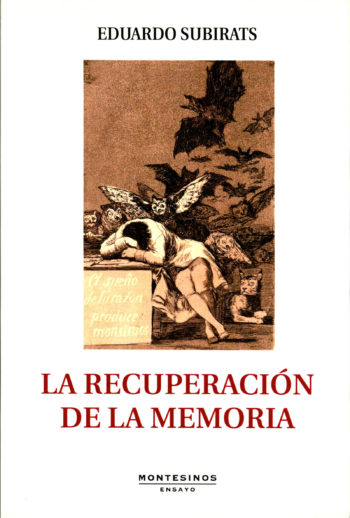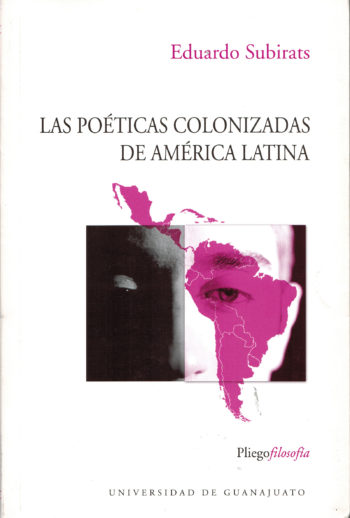I was still a student when I presented a paper titled Die unzulängliche Aufklärung (The Deficient Enlightenment) at a conference at the Institut für Religionswisseschaft at Berlin’s Free University in 1980. There I talked about the dogmatic limitations in the sciences and in culture brought about by the Catholic tradition at the time of the Enlightenment reforms in European societies from Paris to St. Petersburg in the 18th century.
La ilustración insuficiente (1981) was the first confrontational essay that argued against what Spanish national Catholicism called “La ilustración española”—the supposed “Spanish Enlightenment.” My thesis was simple: this “Spanish Enlightenment” is nothing more than a reform of Catholicism; it never attained the autonomy of secular thought that Great Britain’s Enlightenment, Germany’s Aufklärung, or France’s Lumières had achieved.In 1993, I published Después de la lluvia, an essay about the intellectual and political situations during the post-Franco transition. In Miradas fin de siglo (1995) I take up my criticism of Spanish national Catholicism once again, in a series of newspaper articles. Las poéticas colonizadas de América Latina (2009), is a compilation of manifestos and critical essays attacking the prejudices and provincialism of “Hispanism” in United States academia. Deconstrucciones hispánicas (2014) is a collage of essays about the reform of Hispanic historical memories.
At Princeton University’s Romance Languages and Literatures Department, I learned the legacy of two great exiled Spanish professors and reformers of the medieval and modern history of the Iberian Peninsula: Américo Castro and Vicente Lloréns. Castro opened my eyes to Islamic and Jewish Spain, while Lloréns made me aware of the enlightened project of the liberal exiles from 19th century Spain.
The text that more systematically addresses the subject of the renewal of Hispanic memory and the reform of Hispanism and Latin-Americanism, however is Memoria y exilio (2003), later expanded and revised in a 2006 edition titled Recuperación de la memoria. It goes without saying that a reform of this sort has found little popularity in the official Spanish media or in United States Hispanic and Latin-American Studies programs.

